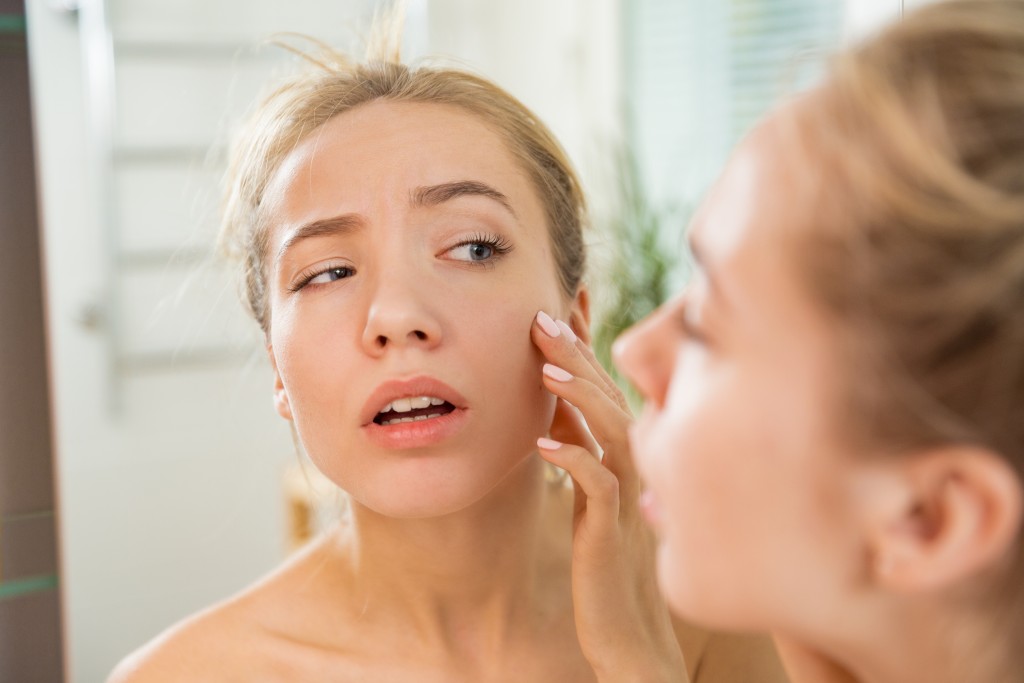Taking care of our skin isn’t just about improving or maintaining our looks; you have to realize that our skin serves as a barrier against infection. Poor skin health won’t only affect your appearance and self-confidence, but it can result in painful (and costly to treat) infection and complications. This is precisely why the skincare market generates around $17B annually in the US, with 52% of consumers saying that they use skincare products each day, spending about $26-$50 each month on beauty and skincare products.
However, no matter how good your skincare routine is, or how much you spend on it, some certain everyday activities or routines end up damaging your skin or at least render your skincare regiment moot. As such, we’ll be taking a look at a few skin-damaging habits that you should be aware of and avoid:
#1 Sleeping on Your Side (Or With Your Face Against the Pillow)
Sleeping on our side or your stomach can be very comfortable, but our face ends up paying for this momentary comfort. When you sleep with your face (or the side of it) against the pillow, it creates friction on your skin, which results in wrinkles and creases. This also exposes the skin on your face to any dirt and oil on your pillow, which can cause acne and other skin conditions. As much as possible, you’d want to try sleeping face-up (or on your back) and with your head elevated (to prevent fluid buildup near your eyes). If you can’t help but sleep on your side, at least makes sure that you wash your pillows regularly and change pillow covers more frequently.
#2 Not Tying Your Hair When You Sleep
Your hair naturally produces oils and can easily ‘collect’ dust and other irritants, which may end up clogging and irritating your pores. It’s for this exact reason that you’d want to wear your hair up and prevent it from touching your face (especially if you haven’t washed it).
#3 Skimping On or Skipping Sunscreen
 Not applying sunscreen can have grave consequences; not only are you more vulnerable to skin damage from UV rays, but you’re also increasing your risk of skin cancer. It’s also important to note that you should apply sunscreen 20-30 minutes before going out, as it takes some time for the sunscreen to take effect — consequently, going out right after applying sunscreen means that your skin is still vulnerable to harmful UV rays for a short while. You should also apply sunscreen despite it being cold or cloudy, and re-apply every 2 hours (or more frequently if you’re sweating).
Not applying sunscreen can have grave consequences; not only are you more vulnerable to skin damage from UV rays, but you’re also increasing your risk of skin cancer. It’s also important to note that you should apply sunscreen 20-30 minutes before going out, as it takes some time for the sunscreen to take effect — consequently, going out right after applying sunscreen means that your skin is still vulnerable to harmful UV rays for a short while. You should also apply sunscreen despite it being cold or cloudy, and re-apply every 2 hours (or more frequently if you’re sweating).
#4 You Don’t Clean Your Phone Frequently
Your phone is dirtier than your toilet seat. An article by StateFoodSafety shows that the toilet seat has 1,201 bacteria per square inch, while the average phone has 25,127 bacteria per square inch. These bacteria can easily get you sick, and also cause irritation or infection on your skin when you’re placing your phone against your face while making a call. So make sure that you keep your phone clean by wiping it with a mixture of alcohol and water on a gentle cloth (to prevent scratching) at least once a day.
#5 Using Just Any Skin Care Product
You have to remember that not all skin is created equal; some products may be effective for certain people, but certainly not all. You should use skincare products that are appropriate for your skin type, and you can visit your local dermatologist in Murray, UT.
Conclusion
No matter how much money and time you spend on your skincare regimen, if you’re guilty of these skin-damaging habits and activities, all your effort and resources would go to waste. So, do yourself a favor and watch out for these habits, and perhaps warn your friends and family against them, too!




